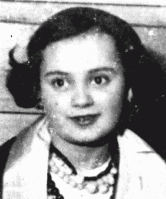You searched for: google搜索留痕转码【TG飞机:@bapingseo】谷歌競價推廣網址【TG电报:@bapingseo】沙特阿拉伯facebook优化【Telegram:@bapingseo】2022世界杯官方投注网lpl比赛哪里买输赢?4kEQdk/mP809R.html
<< Previous | Displaying results 181-190 of 297 for "google搜索留痕转码【TG飞机:@bapingseo】谷歌競價推廣網址【TG电报:@bapingseo】沙特阿拉伯facebook优化【Telegram:@bapingseo】2022世界杯官方投注网lpl比赛哪里买输赢?4kEQdk/mP809R.html" | Next >>
-
Mittelbau Main Camp: In Depth
ArticleLearn about conditions and forced labor in Dora-Mittelbau, the center of an extensive network of forced-labor camps for the production of V-2 missiles and other weapons.
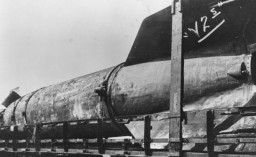
-
Gerda Blachmann Wilchfort describes the mood of passengers on the "St. Louis" after they were denied entry into Cuba
Oral HistoryGerda and her parents obtained visas to sail to Cuba on the "St. Louis" in May 1939. When the ship arrived in Havana harbor, most of the refugees were denied entry and the ship had to return to Europe. Gerda and her parents disembarked in Belgium. In May 1940, Germany attacked Belgium. Gerda and her mother escaped to Switzerland. After the war, they were told that Gerda's father had died during deportation.
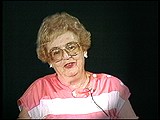
-
The United States and the Holocaust, 1942–45
ArticleWhy did the United States go to war? What did Americans know about the “Final Solution”? How did Americans respond to news about the Holocaust? Learn more.
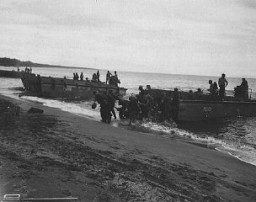
-
Kristallnacht
ArticleOn November 9–10, 1938, the Nazi regime coordinated a wave of antisemitic violence. This became known as Kristallnacht or the "Night of Broken Glass." Learn more
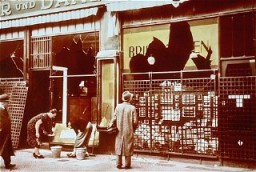
-
Ritchie Boys
Article“Ritchie Boys” is a term used for American soldiers who trained at Camp Ritchie during World War II. Several thousand were Jewish refugees from Europe. Learn more.
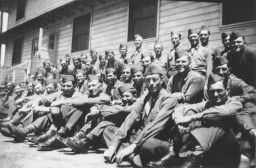
-
Katzenberger Case, March 13, 1942
ArticleThe Nuremberg Special Court ruled on the Katzenberger Race Defilement Case in 1942. Learn more about the outcome and impact of the case.
-
Yitzhak (Irving) Balsam
ID CardYitzhak was the second of four children born to religious Jewish parents. The family lived on the Polish-German border in Praszka, a small town where Yitzhak's father worked as a tailor. His work was not steady, and the family struggled to make ends meet. Yitzhak attended Polish public school in the mornings and Hebrew school in the afternoons. 1933-39: At 4 a.m. on September 1, 1939, the Balsams were awakened by an explosion. The Polish army had blown up the bridge over the Prosna River to impede the…
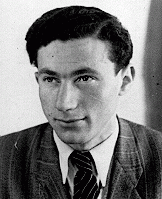
-
Bella Jakubowicz
ID CardBella was the oldest of four children born to a Jewish family in the small city of Sosnowiec, in Polish Silesia. Her father owned a successful knitting factory. In 1938, when she was 12, Bella began attending a private secondary school. 1933-39: When Bella's family returned from vacation in late August 1939, there were rumors of war. Her mother tried to stock up on food but the stores were already out of staples. The Germans took Sosnowiec on September 4; two weeks later they interned all the Jewish men…
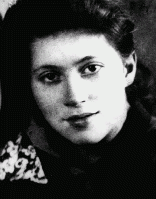
-
Aaron Lejzerowicz
ID CardAaron was one of four children born to a Jewish family in the northeastern Polish town of Zdzieciol. His father was a shoemaker and, along with a business partner, he also ran a shoe store in the town. Aaron attended a private Jewish school, where he studied the Polish language and history as well as Jewish history and Hebrew. 1933-39: On September 1, 1939, Germany invaded Poland. Three weeks later, Poland was partitioned between Germany and the Soviet Union [under the German-Soviet Pact]. Aaron and his…
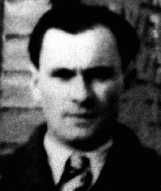
-
Paula Wajcman
ID CardPaula was raised in a religious Jewish family in Kielce, a city in the southeast of Poland. Her family lived in a modern two-story apartment complex. Paula's father owned the only trucking company in the district. Her older brother, Herman, attended religious school, while Paula attended public kindergarten in the morning and religious school in the afternoon. 1933-39: Paula's school uniform was a navy blazer with a white blouse and pleated skirt. At age 9, she did the "Krakowiak" dance at school. Boys…
